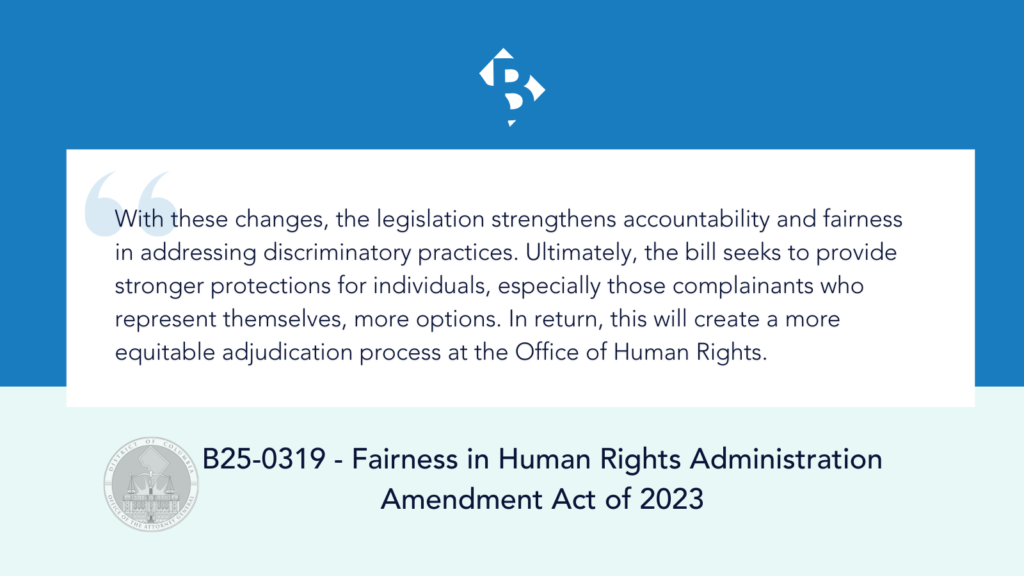A key vote last Thursday, November 21 in the Committee on Public Works & Operations advanced legislation that would provide a fairer and more equitable justice system at the Office of Human Rights.
The Fairness in Human Rights Administration Amendment Act of 2024, introduced by Councilmember Brianne K. Nadeau in June 2023, along with co-introducers Councilmembers Robert White, Zachary Parker, and Janeese Lewis-George, would broaden the scope of unlawful discriminatory practices under the statute’s definition of sexual harassment to explicitly include those based on sex, gender, sexual orientation, and gender identity or expression.
The Committee Print also grants an individual the right to withdraw their complaint at any time by filing a written notice of withdrawal with the Office of Human Rights.
Currently, after the Office of Human Rights investigates a discrimination complaint, it makes a preliminary finding of whether there is probable cause to believe that discrimination may have occurred. Once that preliminary finding is made, the complainant is locked into the agency’s adjudication process. They often, and unknowingly, have made a choice which precludes the right to take HRA claims to court.
Advocates and stakeholders testified at the hearing for the bill that this has created a gap in access to justice. Many litigants filing discrimination cases at OHR are low-income litigants and/or non-native English speakers, and may not realize until it is too late that they have unwittingly waived their right to a day in court.
With these changes, the legislation strengthens accountability and fairness in addressing discriminatory practices. Ultimately, the bill seeks to provide stronger protections for individuals, especially those complainants who represent themselves, more options. In return, this will create a more equitable adjudication process at OHR.
The bill will go to a vote by the full Council on December 3.
